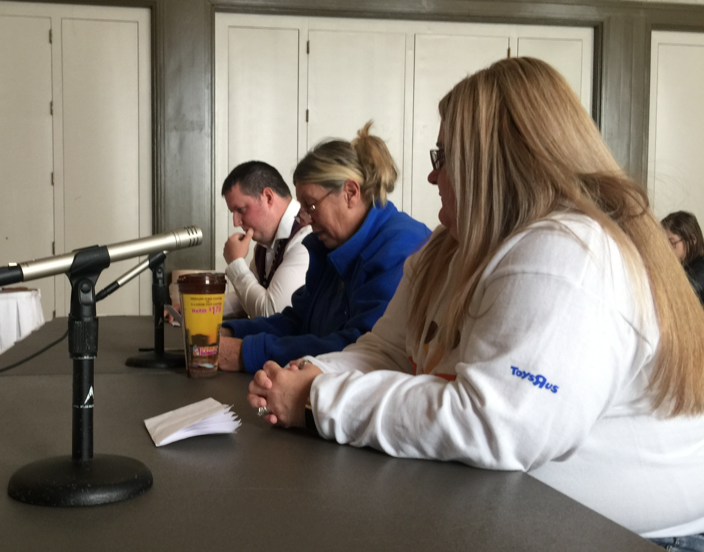
New York Times on pension funds challenging the human cost of private equity investments
November 16, 2018
In October, the New York Times highlighted the efforts of fired Toys “R” Us workers to win a hardship fund from the financial firms that took Toys “R” Us into bankruptcy and liquidation as part of a broader story on pension funds stepping up to challenge the human costs of private equity investments.
New York Times, Oct 8, 2018: “Pensions Get Bolder in Challenging Private Equity on Investments’ Human Cost”
From the story:
Private equity firms and public pension funds have long had a symbiotic relationship: The funds supply the firms with billions of dollars to invest, and the firms deliver double-digit returns that help the funds support retired public servants.
Now, pension leaders are showing a new willingness to confront private equity over the human impact of its investments.
Minnesota’s pension plan temporarily halted investments in one of Toys “R” Us’ former private equity owners, Kohlberg Kravis Roberts, after hearing that 30,000 workers laid off amid the retailer’s bankruptcy had been denied severance.
…
The collapse of Toys “R” Us has earned private equity particularly widespread criticism. The former owners had loaded the retailer up with $5 billion in debt, which helped push it into bankruptcy in September 2017.
Toys “R” Us has also served as a test case for how workers exert their influence through pensions.
Thus far, KKR and Bain Capital, two of the private equity firms that formerly owned Toys “R” Us have committed at least $20 million to a hardship fund to support Toys “R” Us workers, the Washington Post has reported. While this is significant progress, it still falls short of the severance Toys “R” Us workers were promised. Employees, working the Organization United for Respect (OUR), have continued to press the hedge funds that decided Toys “R” Us was worth more dead than alive to support workers.
Other recent media coverage of Toys “R” Us workers’ efforts:
Fast Company, Sept 4: “Why work has failed us: Because companies aren’t sharing the profits”
Financial Times, Sept 3: “Toys R Us workers put pressure on hedge fund”
